Alright – so today we’ve got the honor of introducing you to Hank Slaughter. We think you’ll enjoy our conversation, we’ve shared it below.
Hank, thanks for taking the time to share your stories with us today What’s been the most meaningful project you’ve worked on?
I’ve been lucky enough to work on a lot of different projects and most of them were meaningful in one way or another. First feature film, first western, first time seeing my name in the credits, getting my SAG card, etc. But, at risk of sounding narcissistic, probably the one that holds the most significance is my own short film, “A Deadly Charter”, for several reasons. First of all, I wrote it. And to see my own creation come to life is pretty cool. Also, it was my first time directing. It wasn’t until we were a couple of days into production that I realized how much I enjoy it and want to do a lot more of it. And finally, it was the catalyst that pushed me into being a full-time filmmaker. Or at least a filmmaker without a day job. At the time we were shooting “Charter” I was recently retired from the Army and working as an auto insurance adjuster. When we were ready to premier it, I rented a theater in Dallas and had planned a red carpet event. Then, the day before the premier, that insurance company downsized, and I was laid off. I took that as a sign that I should be doing this full time and I’ve been fortunate enough to not need a “real” job since then.
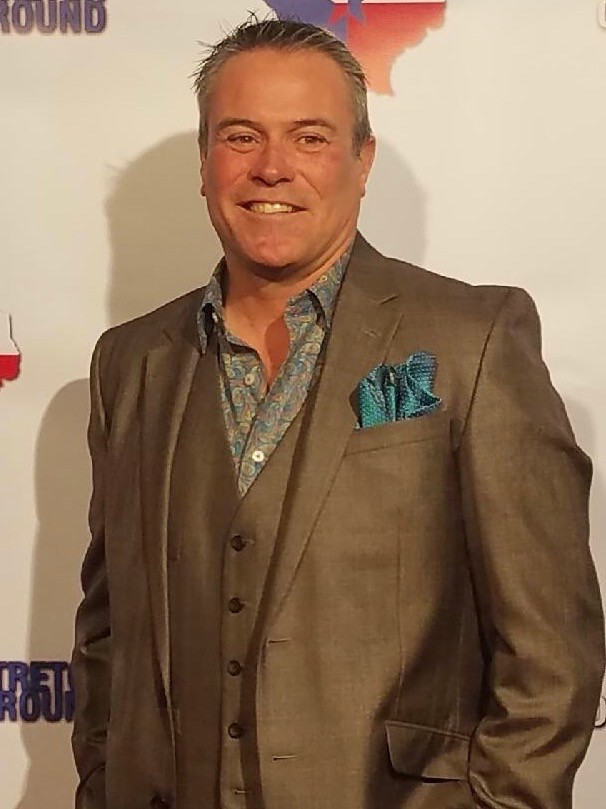
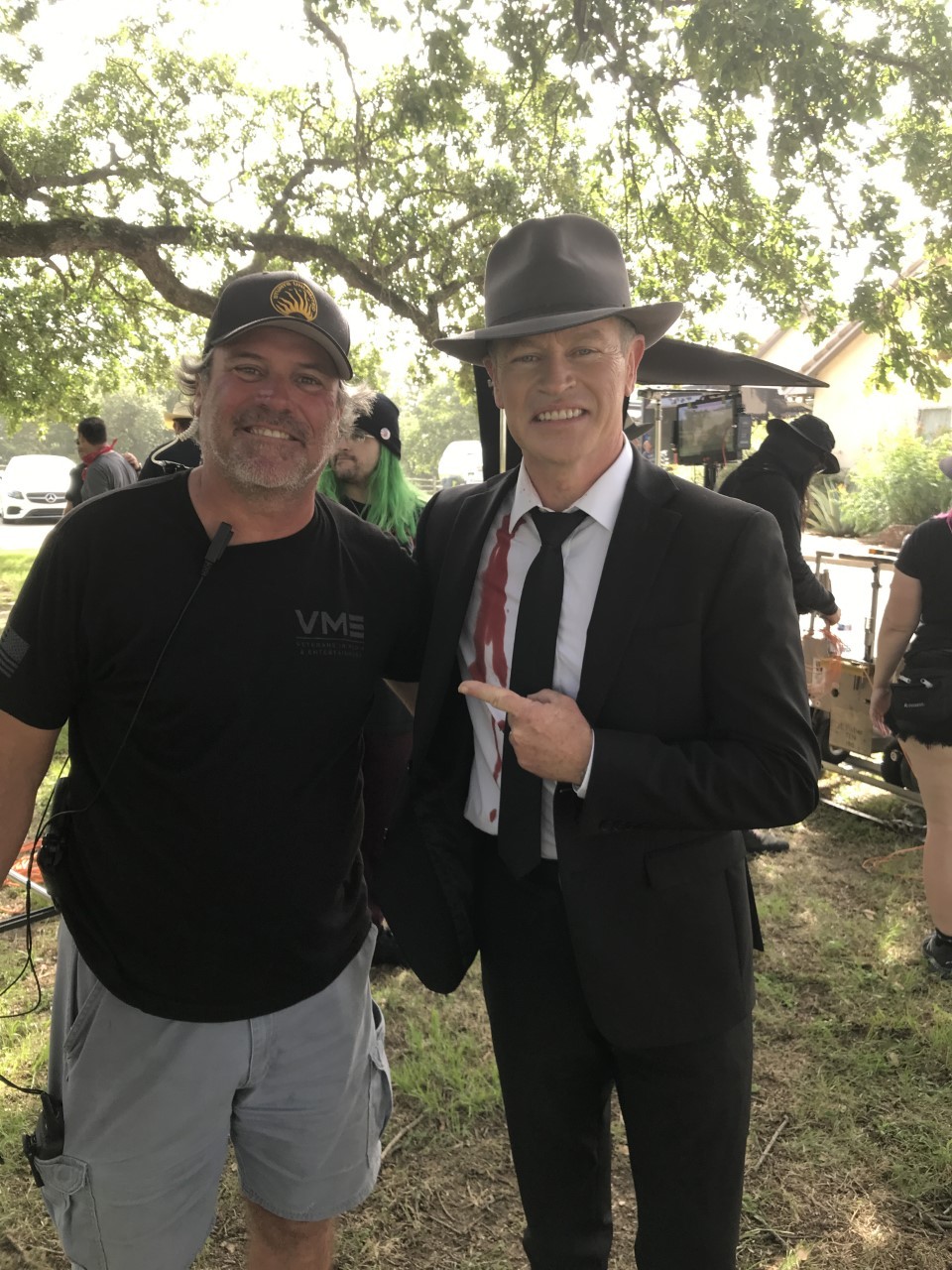
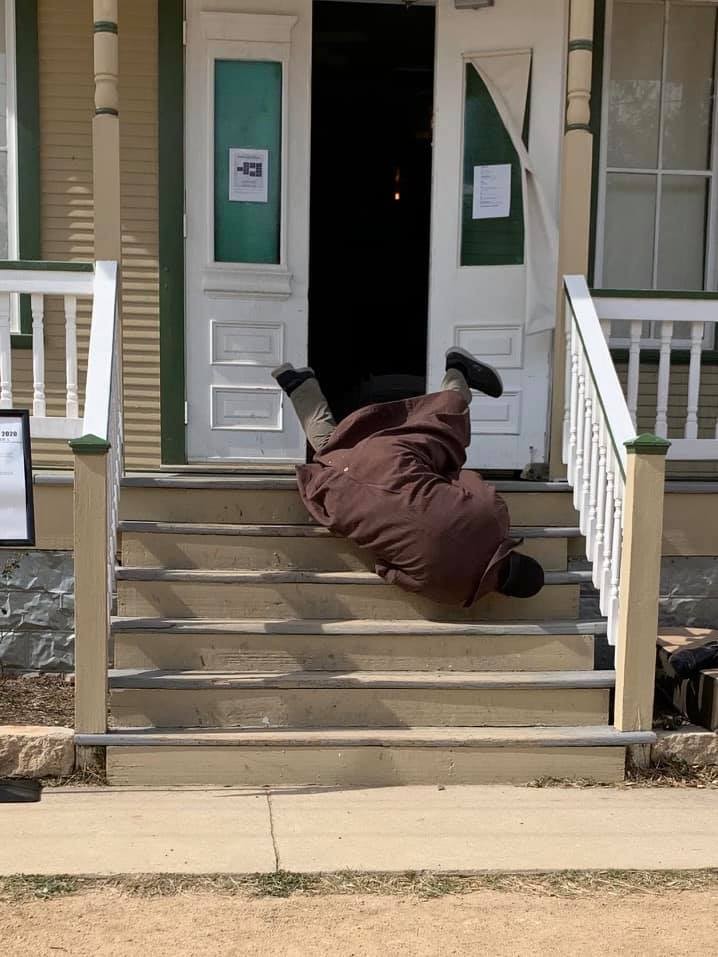
Awesome – so before we get into the rest of our questions, can you briefly introduce yourself to our readers.
I actually got started in show business in 1988. I had just spent four years as an Army scout/sniper and was student at the University of North Texas. I saw an ad in the newspaper (remember newspapers?) for auditions being held for cowboys to be in a music video. It sounded like fun, so I auditioned and actually got the part along with two other guys. One was Moe Headrick, now a talented stuntman and award-winning director, and Grady Bishop, the man I consider my mentor. (Sadly, we lost Grady to suicide this past January). Grady, along with stuntman Thomas Bentley, were putting together a group called Third Coast Stuntman Association modeled after the elite Hollywood group, Stunts Unlimited. Grady invited me to be a member even though I had no experience. But Grady believed I was naturally athletic enough and he started training me, teaching me the basics of screen fighting, precision stunt driving, ratchet work and my personal favorite, high falls. Some notable Third Coast alumni include Chester Tripp, Jim Henry, and brothers Bruce and Gary Eikner.
I completed my BA in Film from UNT as my career began to move along in the 1990’s. Feature films like “Born on the Fourth of July” and “Problem Child” were being shot in the area along with television shows like “Walker: Texas Ranger”. I managed to stay relatively busy for about eight years until many productions, for various reasons, started moving to Florida and Georgia. I finally came to a point where I needed to make a decision: pack up and move my wife and infant daughter to those places or possibly even Hollywood or find another career. I decided to go back on active duty with the Army in 1997.
I served for another 17 years until I retired in 2015. At that time stunts and making movies was a neat experience with some cool stories from my past and I took a job as an insurance adjuster to supplement my Army pension. Then in 2018, an old stunt buddy, Christian Stokes, called me up and asked me to help out as a technical advisor on a film he was stunt coordinating in Austin. I went down and taught some actors how to properly clear a building where some hostages were being held. The director even offered me a small role in the film. After being down there on the set for about a week, i began to realize just how much I loved and missed it. I came back home to Dallas and thought I would see about easing my way back into the industry in my spare time. I got some new pictures made, renewed my SAG membership and signed with an agent. My day job laid me off about two years later and I’ve been going at this fulltime ever since.
Returning to this business after an almost 20-year hiatus is challenging. And now I am pursuing other avenues within the industry. I am starting to get more and more acting roles. I have written two feature films that I am developing, both of which already have distribution deals, and I am co-writing a third along with my wife, Jana Clayton. Stunts and stunt coordinating is still my first love but, of course, stunt work can be physically demanding and age (I’m 58 now) catches up with all of us, so I have probably lost a step or two. And other stunt professionals who are my age have much more on-set experience. But I do bring a passion for storytelling and a degree in filmmaking, a ton of military and tactical training, and a work ethos, integrity, and professionalism that Grady Bishop drilled into me. He taught me the three most important things that I carry with me, not just through everything I do in this business, but through life in general.
1) Always try to be that person on the set who everyone wants to work with again, from the director to the grips to the production assistants to the background actors.
2) Early is on time, on time is late, and late is unacceptable.
3) It’s not who you know; it’s who knows you.
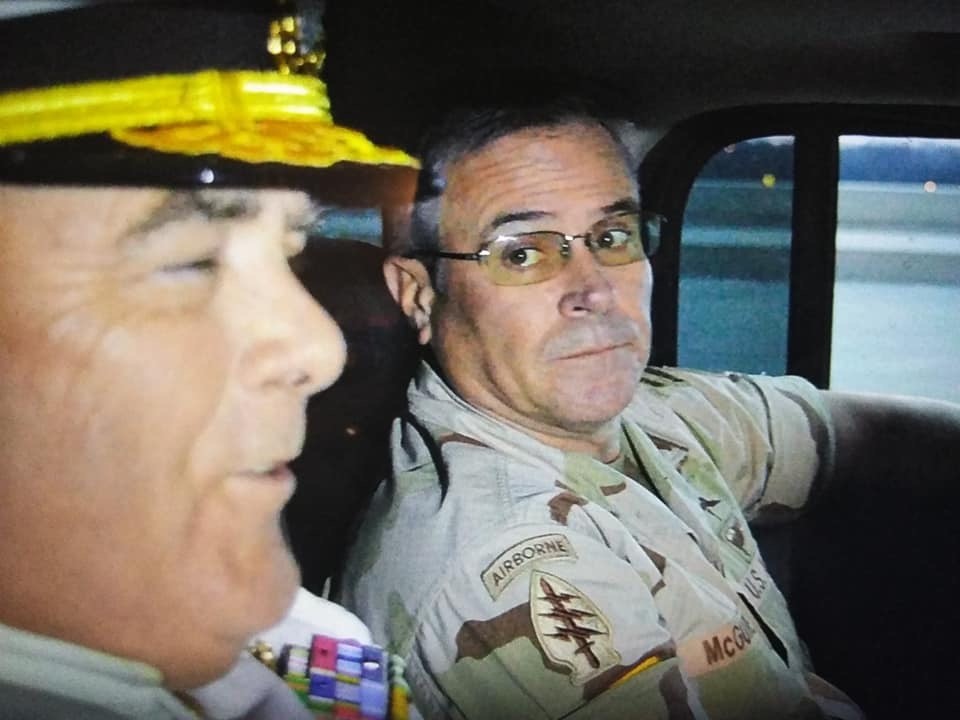
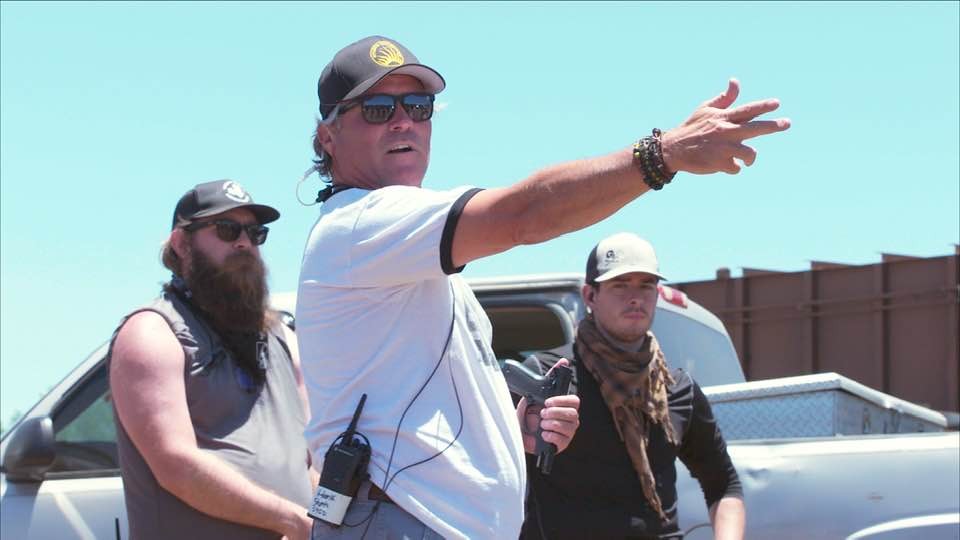
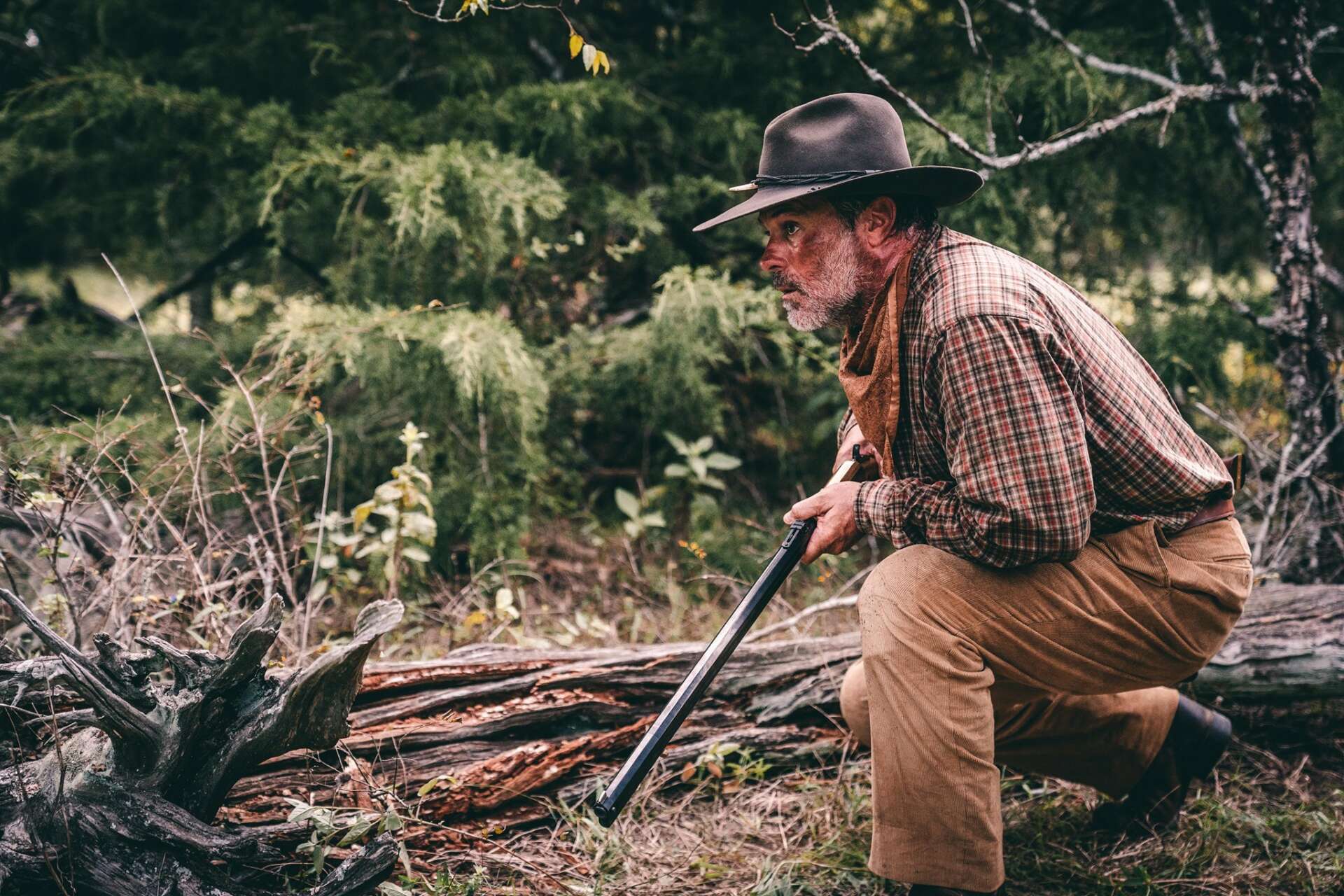
What do you think is the goal or mission that drives your creative journey?
My goal is pretty simple: to entertain. I’m not pushing some political or social agenda. I’m not trying to teach life lessons or inspire people to do great things. I just have stories that I want to tell simply because, in my opinion, they’re cool stories. When I read a book or watch a movie, I’m not looking to be educated or inspired; I just want to be entertained. So when I write a screenplay, it’s because it’s something I want to see on the screen.
What do you find most rewarding about being a creative?
The most rewarding thing for me is people genuinely enjoying my work. When someone goes out of their way to let me know they liked what I created, that’s the best feeling in the world.
Having said that, it’s annoying when creative types are asked to work for no pay because it should be “about the art, not about the money.” Of course it’s about the money. Or at least SOME money. I can’t pay my mortgage with IMDb credits. Yes, it’s the art and the process of film making that motivates me, but a guy’s gotta eat.
Contact Info:


